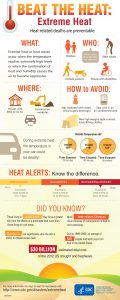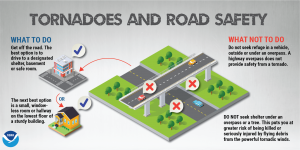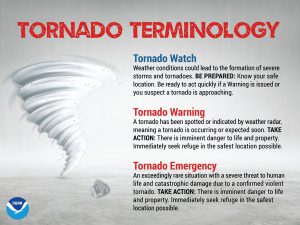Stay Cool
- Wear Appropriate Clothing: Choose lightweight, light-colored, loose-fitting clothing.
- Stay Cool Indoors: Stay in an air-conditioned place as much as possible.
- Schedule Outdoor Activities Carefully: Try to limit your outdoor activity to when it’s coolest, like morning and evening hours.
- Pace Yourself: Cut down on exercise during the heat. If you’re not accustomed to working or exercising in a hot environment, start slowly and pick up the pace gradually.
- Wear Sunscreen: Sunburn affects your body’s ability to cool down and can make you dehydrated.
- Do Not Leave Children or Pets in Cars: Cars can quickly heat up to dangerous temperatures, even with a window cracked open.
Stay Hydrated
- Drink Plenty of Fluids: Drink more fluids, regardless of how active you are. Don’t wait until you’re thirsty to drink.
- Replace Salt and Minerals: Heavy sweating removes salt and minerals from the body that need to be replaced. A sports drink can replace the salt and minerals you lose in sweat.
- Keep Your Pets Hydrated: Provide plenty of fresh water for your pets, and leave the water in a shady area.
Stay Informed
- Check for Updates: Check your local news for extreme heat alerts and safety tips and to learn about any cooling shelters in your area.
- Know the Signs: Learn the signs and symptoms of heat-related illnesses and how to treat them.
- Monitor Those at High Risk: Although anyone at any time can suffer from heat-related illness, some people are at greater risk than others: infants and young children, people over 65 years of age, people who overexert during work or exercise, and people physically ill–especially with heart disease or high blood pressure.
More information on heat-related tips, symptom, and frequently asked questions can be found at https://www.cdc.gov/disasters/extremeheat/index.html.



